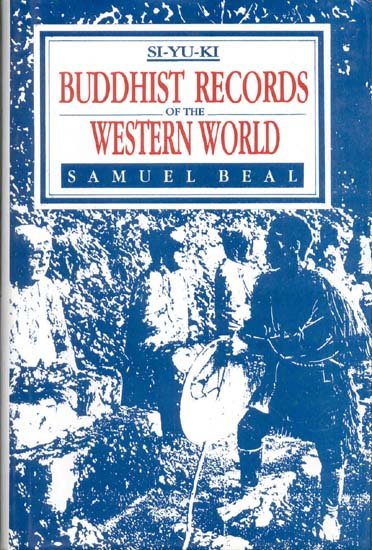Buddhist records of the Western world (Xuanzang)
by Samuel Beal | 1884 | 224,928 words | ISBN-10: 8120811070
This is the English translation of the travel records of Xuanzang (or, Hiuen Tsiang): a Chinese Buddhist monk who traveled to India during the seventh century. This book recounts his documents his visit to India and neighboring countries, and reflects the condition of those countries during his time, including temples, culture, traditions and fest...
Chapter 16 - Country of Ta-lo-pi-ch’a (Dravida)
This country is about 6000 li in circuit; the capital of the country is called Kāñchīpura (Kin-chi-pu-lo),[1] and is about 30 li round. The soil is fertile and regularly cultivated, and produces abundance of grain. There are also many flowers and fruits. It produces precious gems and other articles. The climate is hot, the character of the people courageous. They are deeply attached to the principles of honesty and truth, and highly esteem learning; in respect of their language and written characters, they differ but little from those of Mid-India. There are some hundred of saṅghārāmas and 10,000 priests. They all study the teaching of the Sthavira (Chang-tso-pu) school belonging to the Great Vehicle. There are some eighty Deva temples, and many heretics called Nirgranthas. Tathāgata in olden days, when living in the world, frequented this country much; he preached the law here and converted men, and therefore Aśoka-rāja built stūpas over all the sacred spots where these traces exist. The city of Kāñchīpura is the native place of Dharmapāla Bodhisattva.[2] He was the eldest son of a great minister of the country. From his childhood he exhibited much cleverness, and as he grew up it increased and extended. When he became a young man,[3] the king and queen condescended to entertain him at a (marriage) feast. On the evening of the day his heart was oppressed with sorrow, and being exceedingly afflicted, he placed himself before a statue of Buddha and engaged in earnest prayer (supplication). Moved by his extreme sincerity, the spirits removed him to a distance, and there he hid himself. After going many hundred li from this spot he came to a mountain convent, and sat down in the hall of Buddha. A priest happening to open the door, and seeing this youth, was in doubt whether he was a robber or not. After interrogating him on the point, the Bodhisattva completely unbosomed himself and told him the cause; moreover he asked permission to become a disciple. The priests were much astonished at the wonderful event, and forthwith granted his request. The king ordered search to be made for him in every direction, and at length finding out that Bodhisattva had removed to a distance from the world, driven[4] by the spirit (or, spirits), then he redoubled his deep reverence and admiration for him. From the time that Dharmapāla assumed the robes of a recluse, he applied himself with unflagging earnestness to learning. Concerning his brilliant reputation we have spoken in the previous records.[5]
To the south of the city not a great way is a large saṅghārāma, in which men of the same sort, renowned for talent and learning, assemble and stop. There is a stūpa about 100 feet high which was built by Aśoka-rāja. Here Tathāgata, dwelling in old days, repeated the law and subdued the heretics, and converted both men and Devas in great number.
Going 3000 li or so south from this, we come to the country of Mo-lo-kiu-ch'a (Malakūṭa).
Footnotes and references:
[1]:
This must be Conjiveram. I do not think the text in Hwui-lih can be construed as Julien takes it, "the town of Kin-chi is situated on a port of the sea." The original runs thus: "The town of Kin-chi is the opening (mouth) of the southern sea of India, and in the direction of Siṅhala the water journey is three days." It seems to imply that Conjiveram was the central town from which the traffic to Ceylon was conducted.
[2]:
Ta-mo-po-lo-p'u-sa, in Chinese Hu-fa, "defender of the law."
[3]:
Assumed the cap, "toga virilis".
[4]:
Both here and in the preceding portion of the narrative the phrase used is shin fu, which may either mean "carried by spirits" (in the sense of divine spirits) or "driven by his own spirit." Julien adopts the former rendering. We should in this case have expected to find the phrase "kwei shin", instead of "shin". Hwui-lih, however, tells us that it was "a great king of the spirits" (one of the Mahādeva-rājas) that carried him away.
[5]:
See ante, vol. 1. p. 238. For some account of his writings, compare Hwui-lih, book iv. p. 191 (Jul.); see also note 87, book ix.
